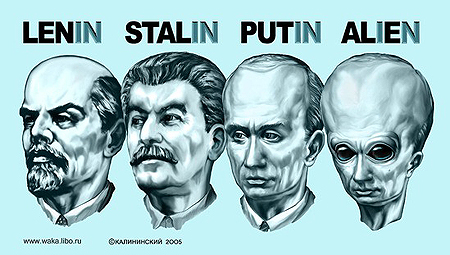 Alexei Bayer, writing in the Moscow Times:
Alexei Bayer, writing in the Moscow Times:
The origins of the Russian state and its early history help explain the country’s modern political makeup.
According to the Kievan Primary Chronicle, compiled around 1110, Slavic tribes invited Scandinavian prince Rurik to rule over them in the 9th century. But the history of the Viking expansion in Western Europe suggests that an “invitation” was hardly necessary. In the West, the Vikings began by raiding settlements, pillaging them and dragging their inhabitants off to slavery. They set up outposts to collect tributes, gradually becoming feudal lords. They adopted the local language and customs and eventually melded with the local population.
The Norsemen followed the same pattern in Britain, France and Sicily. The Varangians, as they were known in Russia, became feudal lords and the name of their tribe, the Rus, gave Russia its name just as Normandy was named after the Normans.








